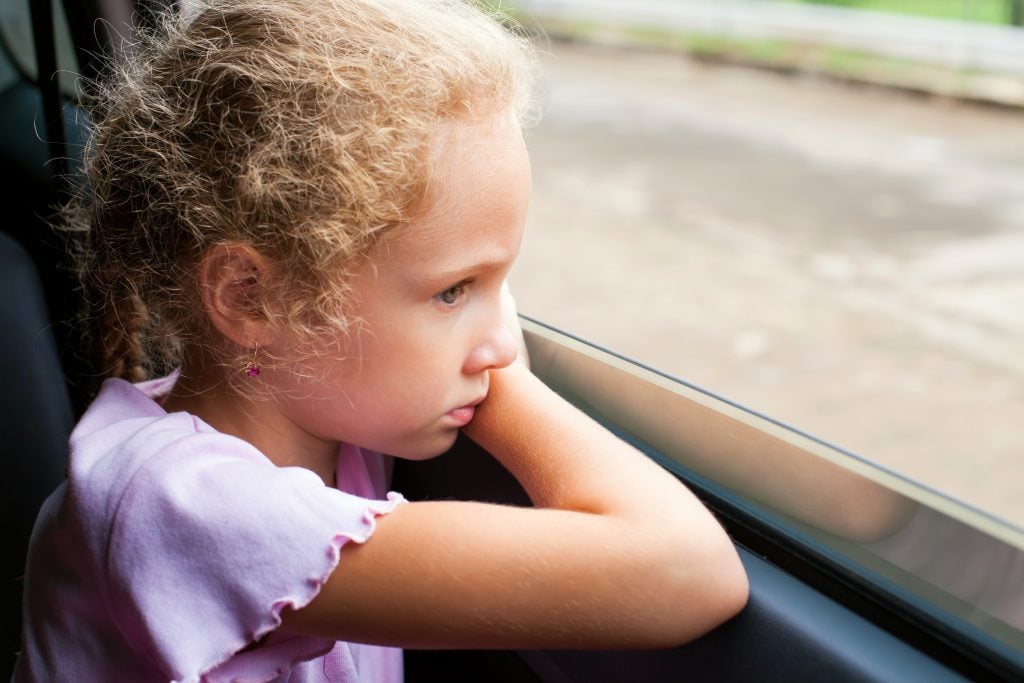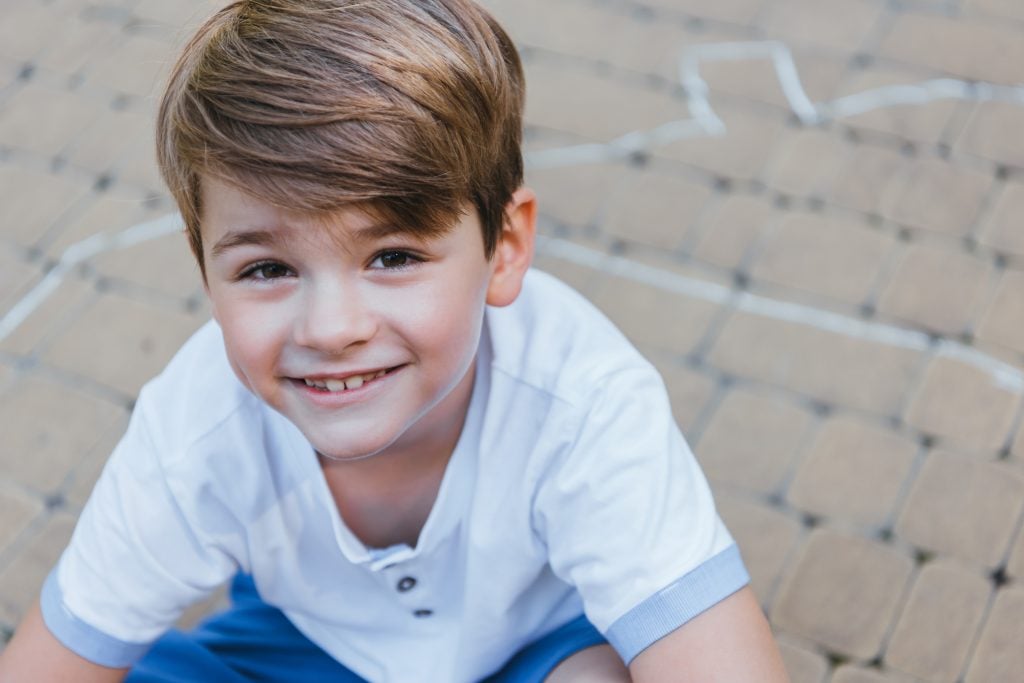Childhood Anxiety: Diagnosis & Natural Treatment Options
Childhood should be a time of happiness and laughter. Unfortunately, we live in a world where even young children experience incapacitating fears that rob them of joy and playfulness. Childhood anxiety is not just being a little bit nervous on the first day of school. It is extreme fear and constant worries even about minor life challenges.
Anxiety in children can affect school performance, family life and can even cause physical symptoms. Children with anxiety can have constant aches and pains, tummy aches, headaches, poor sleep, no appetite, and they can refuse to go to school. Anxiety can cause a child to be irritable or withdrawn but also sometimes aggressive and irritable.
If you think your child has anxiety, don’t wait for it to go away on its own. Most of the time, social anxiety in children will not resolve without help.
What Does Anxiety in Children Look Like?
Childhood anxiety is a very common problem among children and adolescents. More than 1/3 of adolescents have anxiety and children as young as 6 years old can experience feelings of anxiety. More than 20% of visits to a pediatrician’s office are due to behavior issues, Many of these patients have anxiety.
Stress and the “fight or flight” response
Many children with social anxiety have a heightened response to stress. Things that stress children out can range from being tired, hungry, too hot or too cold, being nervous about a test or making new friends. Children react to stress the same way adults do – their little bodies are going into a “fight or flight” response.
“Fight” can look like being defiant, argumentative, or hitting other children. Children in “flight” are usually withdrawn, refusing to participate in any activities, or refusing to go to school. Children are usually unable to verbalize “stress” but they’re acting it out through their behaviors or physical symptoms.
One of my little 4 years old patients told his parents who asked him why he hit a child at school that “I really don’t know, my body did it”. In some extremely stressful situations, children’s response to stress can be freeze (not moving, not talking, refusing to interact) or even faint.
Diagnosis of Anxiety in Children Under 10
The first step in treating anxiety in children under 10 (and sometimes older) is to establish a good diagnosis to potentially rule out medical problems. There are many physical problems that can present as anxiety. Patients should be evaluated by a physician to rule diseases like thyroid problems or anemia, which can cause anxiety symptoms. Certain commonly used medications, like asthma or ADHD medications, can also cause anxiety.
Childhood Anxiety Treatment
Childhood anxiety treatment can be done in various ways. We’ll discuss both conventional and natural ways to treat anxiety in children.
Conventional Treatment for Childhood Anxiety
Conventional treatment for childhood anxiety usually includes a prescription medication, like a selective serotonin reuptake inhibitor (SSRI). Although some patients with anxiety absolutely need an SSRI, at least short-term, these medications can have side effects and should not be used without implementing an integrative treatment plan.
Some patients may be tempted to rely solely on prescription medications to manage their symptoms, which may work briefly or in the short term, but it does not address to the root cause of anxiety and it is not a long-term solution.
Integrative Treatment for Anxiety in Children
An integrative treatment plan includes several elements that fit nicely together like the pieces of a puzzle. Prescription medications are only one piece of the puzzle. The rest includes lifestyle changes, nutrition, supplements, herbs, stress management, and other interventions like massage, homeopathy, Ayurveda, and Traditional Chinese Medicine.
Lifestyle Changes
- Make sure kids don’t get hungry or thirsty. As a pediatrician, I often write notes for the school to allow children to have snacks or drink more water.
- Keep a routine in their daily schedule. Allow for frequent breaks and do not over-book their calendar.
- Make sure they get enough sleep and establish a healthy sleep routine. Turn off all electronic devices two hours before bedtime.
- No TVs in the bedrooms. Limit screen-time to less than 1-2 hrs/day.
- Exercise – children should play outdoors at least an hour every day!
Nutrition & Supplements
- Eliminate stimulating drinks like sodas, power drinks, or coffee.
- Adopt an anti-inflammatory diet (see pediatric anti-inflammatory pyramid), rich in vegetables, fruits, healthy fats, fish, nuts, seeds, high quality meats.
- No processed food.
- Omega 3 Fatty Acids: large studies have shown the benefit of omega 3 fatty acids in several mental health disorders, especially ADHD and depression (1) As anxiety can go along with these conditions, for children and adolescents who have a diet low in omega 3, I would recommend taking a fish oil supplement.
- Probiotics, “psychobiotics”, gut-brain flora (2): more research and exciting new data are coming out in the field of gut/microbiome-brain connection. Stress hormones like cortisol and adrenaline can affect the type and function of intestinal bacteria (microbiome). In turn, the microbiome can produce several neurotransmitters like serotonin and GABA, which can affect the gut-brain axis. For children, I recommend developing a taste for fermented foods which are rich in natural probiotics and to eat lots of veggies that are rich in prebiotics, which contribute to growing a healthy microbiome. Foods rich in prebiotics are oats, artichoke, onions, garlic, apples, bananas.
Herbs to Help Soothe a Child’s Anxiety
- Chamomile (3) and lemon balm (4) can be used for anxiety as teas, tinctures, or capsules.
- Regarding other herbs and supplements like valerian, rhodiola, passion flower, L-theanine there are few studies in adults but insufficient data in children to recommend routinely. It’s best to discuss their use for childhood anxiety with an experienced integrative pediatrician.
Mind-Body Techniques and Stress Management
Stress management is recommended for the entire family, not just the child. Children easily pick up adults’ stress level and this changes their neurochemistry. Some stress management or mind-body techniques are meditation, belly breathing, guided visualizations, journaling, biofeedback, clinical hypnosis, yoga, music therapy. Children as young as 5-6 years of age can learn how to meditate. (Refer to the addendum for some basic meditation instructions.)
Other interventions that can be part of an integrative treatment plan for anxiety are massage, homeopathy, aromatherapy, or ancient medical systems like Ayurveda and Traditional Chinese Medicine.
Social Anxiety in Children: Points to Consider
- Parents should think about supplements, even homeopathic remedies, the same way they would about a prescription medication. Discuss any supplements with an experienced, well-trained integrative medicine practitioner. Nothing that children ingest or are exposed to is always risk-free.
- Think about nutrition, lifestyle, and stress management as equally important. Kids can eat all the healthy food in the world, but if there’s any kind of consistent stressor in children’s lives or if they are constantly sleep deprived, the anxiety symptoms are not going to improve.
- Do not either underestimate or overestimate the role stress plays in a child’s anxiety. Always rule-out medical causes (hyperthyroidism, anemia etc) and possible severe traumas, like abuse or bullying.
- Last but not least, perhaps one of the most important take-home message: With all the love in the world, parents can inadvertently increase or even cause their children’s anxiety. Unless parents address their own anxiety or emotional problems, children are not going to improve and thrive emotionally.
Free Resources for Helping Children with Anxiety
- Guided Meditation Scripts for Kids by Mellisa Dormoy
- Guided visualization: Kaiser Permanente, Health Journeys podcasts created by Belleruth Naparstak (https://healthy.kaiserpermanente.org)
- Mindfulness for Teens: http://mindfulnessforteens.com/guided-meditations/
- Childhood anxiety and stress relief programs: https://www.gozen.com
- Pediatric anti-inflammatory pyramid: https://media.chop.edu/data/files/pdfs/anti-inflammatory-diet-pyramid-pfe.pdf
References:
- Gillies, Sinn, Lad, Ross 2012: “Polyunsaturated fatty acids for ADHD in children and adolescents” Cochrane Database Syst Rev
- Mayer, Tillisch, Gupta 2015: “Gut/brain axis and microbiota” J Clin Invest
- Singh et al 2011: “Chamomile: an overview”. Pharmacogn Rev
- Muller and Klement 2006: “A combination of valerian and lemon balm is effective in the treatment of restlessness and dyssomnia in children” Phytomedicine


